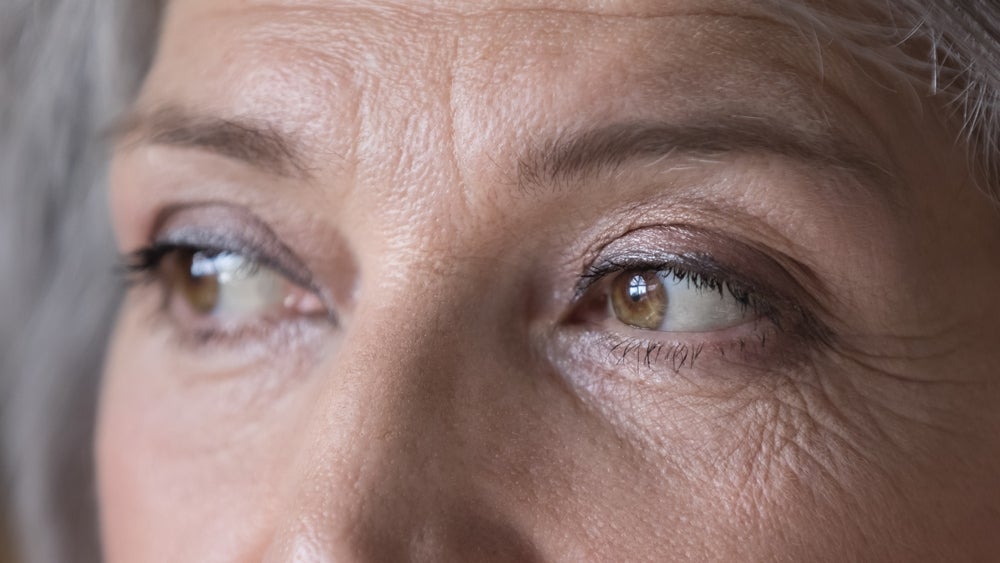
Aviceda Therapeutics has reported positive topline data from part 1 of aPhase II/III trial evaluating its candidate AVD-104 in patients with geographic atrophy (GA) secondary to age-related macular degeneration (AMD).
The positive safety and efficacy results were recorded three months after a single dose of AVD-104 – an intravitreal glycan-coated nanoparticle.

Discover B2B Marketing That Performs
Combine business intelligence and editorial excellence to reach engaged professionals across 36 leading media platforms.
The Phase II SIGLEC is a two-part US trial (NCT05839041) evaluating the safety, pharmacokinetics, and efficacy of intravitreal AVD-104. The multi-centre, open-label safety and dose-escalation part 1 followed 30 patients for three months after a single injection of the drug, according to a 16 January press release.
Reductions in GA lesion progression were recorded, along with best corrected visual acuity (BCVA) gains. Junctional zone hyperautofluorescence was reduced, which indicates decreased disease progression. All patients tolerated the dose with no drug-related ocular or systemic adverse reactions.
Aviceda’s Chief Medical Officer David Callanan said: “We are excited to see signs of significant visual & functional improvement and rapid reduction in the rate of GA lesion growth with a positive overall safety profile following a single dose of AVD-104.”
AVD-104 is aiming to become the third US Food and Drug Administration (FDA)-approved therapy for GA secondary to AMD. Apellis Pharmaceutcials’ Syfovre (pegcetacoplan) was the first drug to gain FDA approval in this indication in February 2023. Iveric Bio’s Izervay (avacincaptad pegol) was then approved by the US Food and Drug Administration (FDA) for GA secondary to AMD in August 2023.

US Tariffs are shifting - will you react or anticipate?
Don’t let policy changes catch you off guard. Stay proactive with real-time data and expert analysis.
By GlobalDataSyfovre is forecast to have sales of $1.9bn by 2029, according to GlobalData’s Pharma Intelligence Centre. Izervay is estimated to have $1.5bn of sales by the same year. GlobalData also predicts the AMD market will reach $27.5bn across the seven major markets by 2031.
GlobalData is the parent company of Clinical Trials Arena.
AVD-104 will need to advance through Aviceda’s SIGLEC study Part 2 – a multi-centre, double-masked, randomised, controlled trial. This will compare AVD-104 to Iveric Bio’s Izervay.
Part 2 will enrol an estimated 300 patients who will be dosed for a year. The primary endpoint will be the difference in growth rate of the GA area between the AVD-104 and Izervay group. Topline data is expected in 2024 and early 2025.
GA is a late stage of dry age-related macular degeneration. It causes a loss of retinal cells, leading to irreversible loss of vision.
AVD-104 works by inhibiting cellular and humoral drivers of disease progression in the junctional zone. This dual mechanism of action is different to the FDA-approved therapies. In the case of Izervay, complement protein C5 is inhibited. Syfovre, on the other hand, inhibits complement protein C3.
David Callanan added: “We look forward to initiating Part 2 of SIGLEC, in which we hope to demonstrate the capability of AVD-104 to provide a meaningful improvement over therapy that is only based in complement inhibition.”
Also in the clinical space is Lineage, Roche, and Genentech jointly-developed OpRegen, which demonstrated positive results in a Phase I/IIa study in April 2023. In October 2023, Boehringer Ingelheim and CDR-Life also said it is starting a two-part Phase I trial for its GA candidate.





